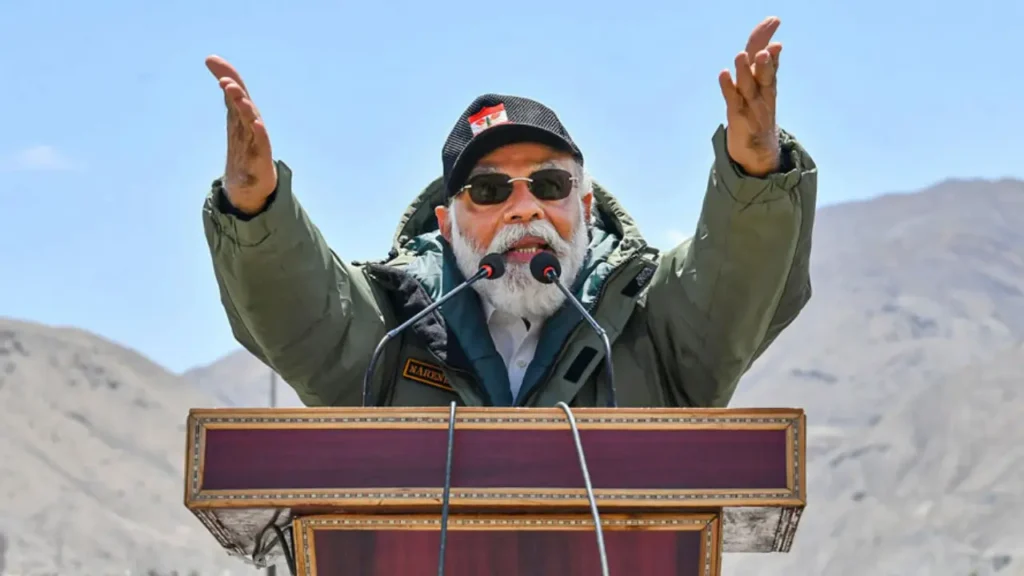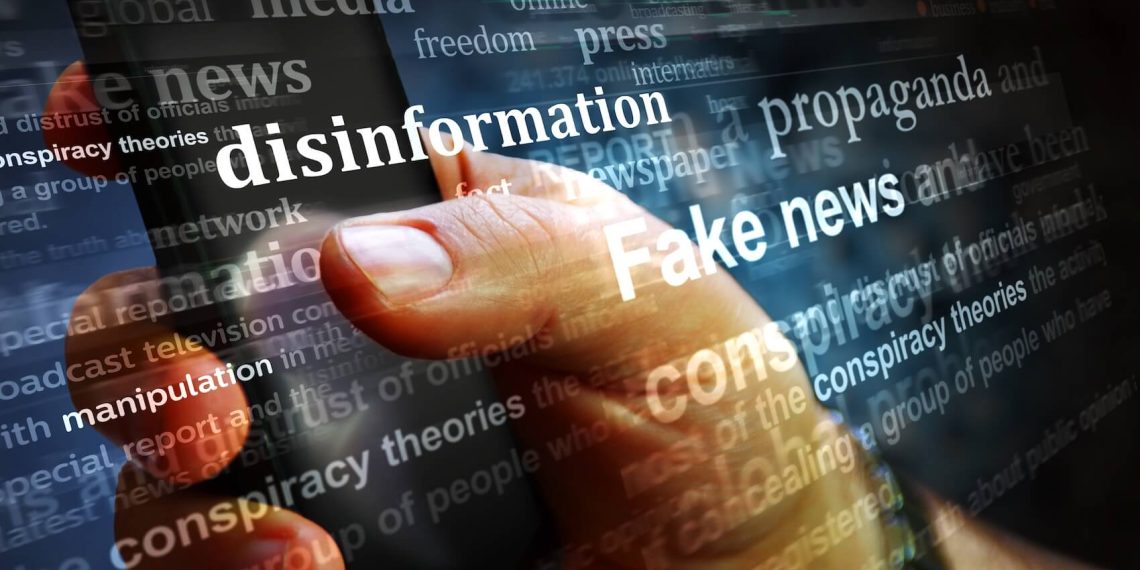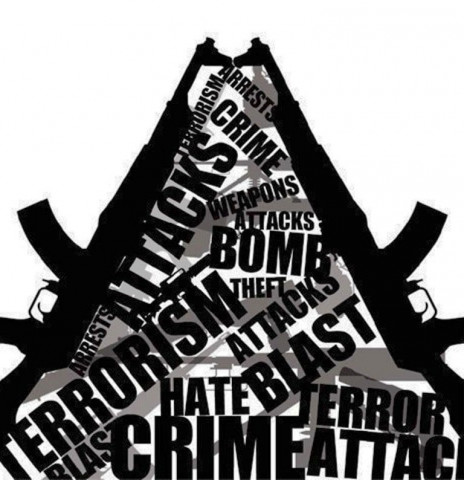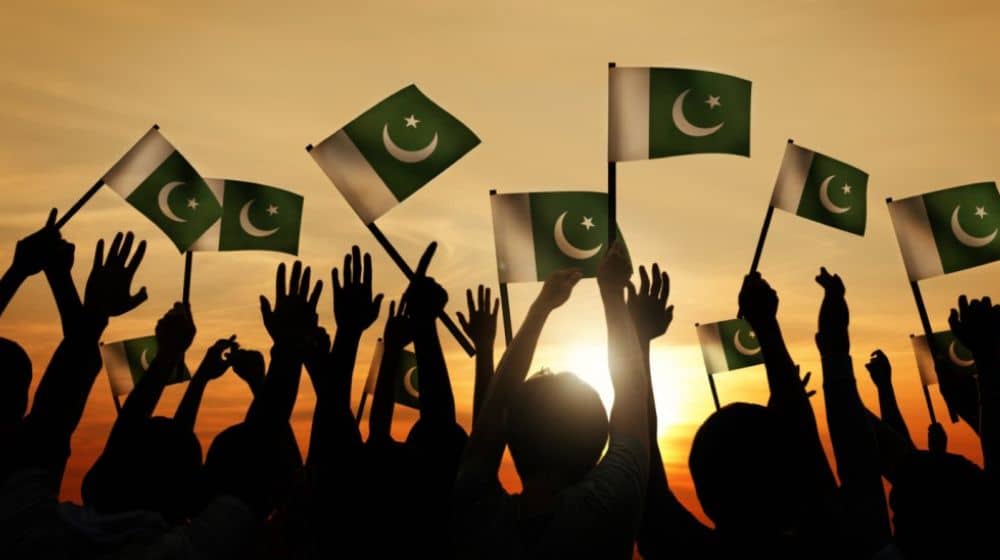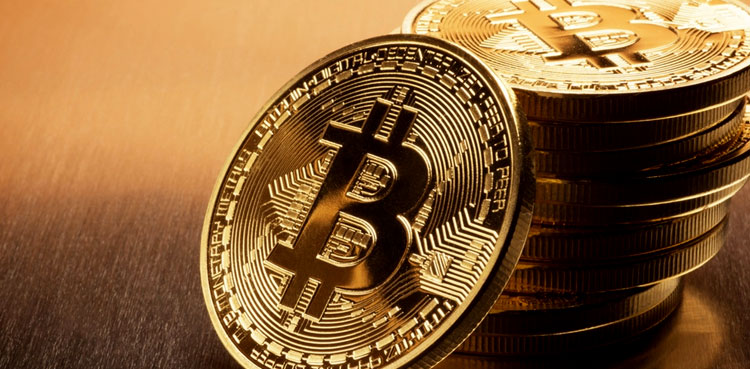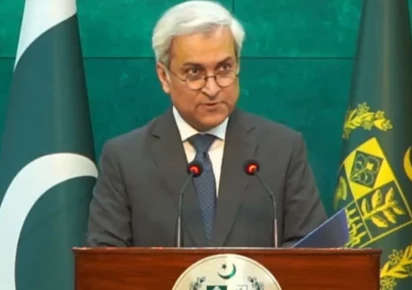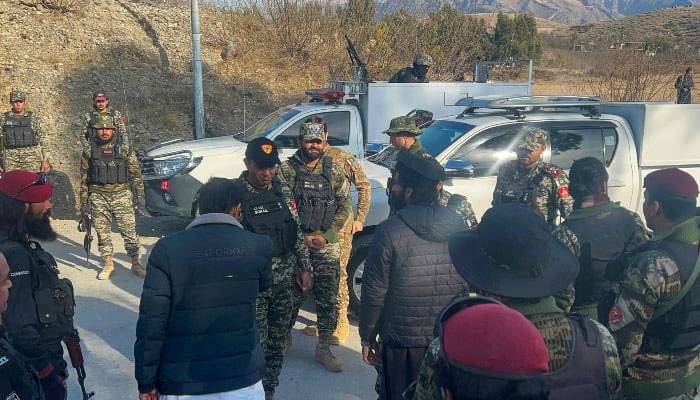The 2025 Indo-Pak war, which ceased on May 10 after a week of intense fighting, has revealed the chilling truths that the world has swept under the rug in today’s world. What was at stake between the two nuclear neighbours was an unthinkable disaster that sprang from an ideology legitimised by institutions of the state. With the rise of Modi’s BJP, India has projected itself as a destabilising regional power and a danger to world peace. Yet Pakistan, far less endowed in terms of assets, has become a victorious nation, a nation that has shown its mettle, defying the odds, and a nation which has had to bear the monstrousness that is Hindutva-inspired militarism, a disastrous cocktail of religious bigotry, colonial vestiges and ultra-nationalist arrogance that nearly pushed South Asia to the edge of the abyss.
The Hindutva military complex and regional destabilisation:
This is not a war originating in an acute violent moment, but in a gradually escalating fascistic geopolitical Indian order. Under the guise of Hindutva, a hyper-nationalist ideology, India dreams of acquiring real estate that accommodates present-day Pakistan and Bangladesh, and has successively waved away its democratic facade. Our military establishment got involved in an ideological crusade, not a tactical one, of the unarmed Kashmiris and this instilled in India the arrogance to show their muscle on unarmed Kashmiris and also to play to the gallery along the Line of Control.
India’s reckless flirtation with conflict, emerging from an assertive Hindutva-dictated policy, is responsible for open warfare. The escalation that led to this open warfare began with fabricated skirmishes, including the Pahalgam attack staged to depict Pakistan as both the moral and mortal enemy. This transition would satisfy the diversionary Indian domestic agenda and bolster the Hindutva base ahead of the elections. The Indian state has adopted Israel’s settler colonial policy to engage in continuous demographic engineering by silencing the people in Kashmir, Assam, and Manipur, while adopting the attitude of haunting wolves, enveloping the wolf in the cloth of national security and exercising rash, naked violations of human rights, accepting them as an internal matter. The war of 2025 did not erupt as a war of last resort but as an opportunity for ideological acquisition.
What India’s military planning reveals is an indulgent overconfidence rooted in unrealistic assumptions and expectations of assured victory. With an irresponsible media enabling the government’s irrational policies and a populace-monitoring bureaucracy, the military is in a precarious situation. The outcome of this was somewhat of a strategic misstep. Pakistan’s military integrated electronic warfare, air defence, and narrative cohesion, effectively thwarting India’s strikes with surgical precision and restraint. The conflict not only exposed India’s strategic vulnerabilities but also shattered the Indian belief in their invincibility that the BJP had propagated over the past decade.
Information war and the Collapse of the Indian media:
India’s defeat on the info-war front was as embarrassing as the country’s losses on the physical battlefields. India’s corporate media abdicated its public interest role and transformed into a rabid propaganda machine. Undoubtedly, the war has exposed how public opinion influences the highest levels of state power. The unthinking hysteria generated by prime-time anchors such as Arnab Goswami of Republic TV; Navika Kumar of Times Now; Anjana Om Kashyap of Aaj Tak; and Gaurav Arya of Republic Bharat felt raw, turning newsrooms into war-rooms for Hindutva ultra-nationalism. Goswami asserted there were airstrikes; Arya spoke of tanks from India rolling into Pakistan. Kumar and Kashyap, on the other hand, did not voice their thoughts, merely echoing government-endorsed views without any semblance of criticism or pretence.
This news telecast was not journalism in any way but a state-sponsored dreamscape. As they continued to bounce around an echo chamber filled with slogans of illusory victories and hate speech directed at “Big Bad Pakistan”, a narrative of escalation developed, and some commentators voiced calls for further escalation that finally intensified public opinion… and ensnared India’s policymakers in an echo chamber of doom. This fostered an irrational reality that became increasingly detached from hard facts. While Indian troops were trying to fend off Pakistani responses, folkloric maps from across the border sparkled with magnificent victories. Intoxicated by an ideology that has long dominated India’s political and military leadership, and emboldened by a compliant media that refused to question the rationale for war or the government’s belligerence, India’s military leadership stumbled from one act of self-humiliation to another.
By contrast, Pakistan’s media and strategic communication architecture was an authoritative behemoth. The gumption, however, came from the ISPR, which confirmed the truth while surgically dismantling Indian lies to ensure the public remained informed about the war narrative. Instead of succumbing to jingoistic hysteria, Pakistan chose to maintain its stance on the home front and preserved its global image. The result was a strategic narrative victory: Pakistan was portrayed internationally as a relatively contained victim of evidently unprovoked aggression. At the same time, India was revealed as a runaway democracy teetering on the brink of authoritarianism.
The troubled bully:
India’s loss in 2025 should also be viewed in the context of its overall behaviour on the world stage. New Delhi has long revelled in the image of a rising power, embraced by the West, flattered with trade partnerships and appeased by think tanks eager to access its market of over a billion people. However, underneath it is a coercively addicted polity. From the annexation of Kashmir in 2019 to pressuring smaller neighbours like Nepal and Sri Lanka, India has, for too long, played the victim while wearing the guise of an aggressor.
This bully complex, has been tolerated by the West for a very long time. Desperately, India wanted once again to present itself as a victim of “cross-border terrorism,” its favourite excuse to demonstrate aggression. However, Pakistan’s superior intelligence, along with real-time declassification of Indian misadventures, shattered that mantra. India’s bluff had been called. Its longstanding policy of using terrorism as a pretext for state actions, as well as orchestrating large-scale false flag operations to gain public approval, was there for the international community to witness. Even more revealing, its unrestrained dominationist enthusiasm for obliterating sovereign nations and its unapproved dreams of Akhand Bharat, mired in blood, were on shameless display.
It is an ideological peril that is spreading through diaspora networks and political lobbying in Western Capitals. Over the last decade, these organisations, which have strong connections to Hindutva, have inundated the US, UK, and Canada with identity politics, funding hate campaigns and intimidating dissenting voices. It was not a lone, chilling exception but rather an illustration of how far a state is willing to carry out repression abroad. India’s state-sponsored assassination of Hardeep Singh Nijjar is a sign of how far Hindutva has advanced. The international march of Hindutva transcends national boundaries and disregards democracy, global governance, or human rights.
Unchecked, this transnational Hindutva is a threat to pluralism, democracy and world peace.
It normalises state-sponsored hate, reconfigures war as we understand it, and undermines the liberal order many in the West claim to support. The war in 2025 between India and Pakistan is a harbinger not just as a regional flashpoint but of something else as well: a democracy in the clutches of fascism and cheered on by a compromised press and with the enabling silence of the developed world.
Pakistan’s strategic, moral, and diplomatic success:
Amidst this ideological cauldron and period of bloodshed, Pakistan not only survived but also achieved decisive victories on various fronts. It resisted Indian aggression with better foresight, adaptable technology, and integrated command systems. Diplomatically, it has gained recognition as a rational actor pursuing de-escalation on the international stage. Ethically, it has maintained a sense of proportion, refusing to surpass Indian barbarism while abiding by the rules of warfare.
While India’s media was busy engaging in self-congratulatory antics, Pakistan was strategically exposing the war crimes machine, strategic miscalculations and reckless journalism in India. That has been Pakistan’s most successful work: ripping the cover of democracy off Hindutva’s fascist face, under the mask of development, draining the subcontinent of politics even as it booms with rhetoric. When the world got tired of Modi’s theatrics, the world finally started paying attention. And so, the victory for Pakistan becomes much bigger than what is on the ground.
It shattered a fascist narrative built on decades of hate and 21st century propaganda and served as a wake-up call for the world that Hindutva is not merely an Indian problem but a global one. The 2025 Indo-Pak war should not be remembered as yet another ceasefire line drawn in a paradoxical balance after a week of hostilities. Behold how India’s deep investment in Hindutva, its anti-truth media, and its willingness to provoke a nuclear flashpoint unveiled the reality behind Bharat’s mask. The mask is off, and with it, all economic charm offensives and yoga summits are stripped away.
Now, the world faces a problem of its own making. It can continue to coddle India as a “democratic counterweight” to China, or confront the reality that Hindutva, the Indian ideology, is the single most dangerous ethno-nationalist movement in the world. Pakistan has already defused the situation with forbearance; now, the onus is on the world.
Disclaimer: Opinions expressed in the writing are the author’s own and do not represent the policy of Khabar Kada.
Author
-
Barrister Muhammad Navid Akhtar Hamid is a prominent lawyer. He is a legal, political, and foreign policy commentator based in London.
View all posts

